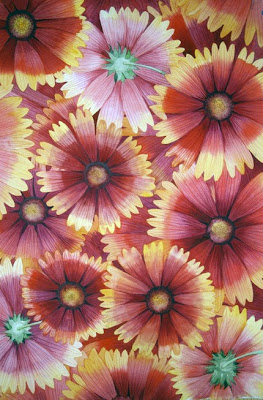
An expanded version of my previous review.
Critics would have it that Mexican film maker Carlos Reygadas' work is influenced by Dreyer and Dumont by way of Malick or von Trier. However, Silent Light (Stellet licht), which screened at this year's Sydney Film Festival, is indication that Reygadas' is a mature film maker who has come into his own. The film is a tale of adultery set in a Mexican Mennonite community and spoken in an archaic language, which is really its least remarkable aspect. For between its wondrous opening and ending shots of the beginning of a day and its close, which seem to unfold in real time, Reygadas' film is a slowly unfolding marvel of philosophy and grace.
The effect of adultery on a marriage can be explored in many ways from bedroom farce to a full fledged assault on patriarchy to a more relaxed poly amorous approach where adultery is sexy and the actors get to shed their clothes. Silent Light, which makes use of non-actors from an actual Mennonite community, eschews all this. Reygadas keeps the film unhurried and the dialogue (or what there is of it) formal and this quality combined with the Mennonite setting gives the film a quality of being archtyepal. There isn't much by way of plot, we begin the day with Johan and first by his tears and then by way of a number of interactions learn that he is in a married man in an adulterous relationship. That the relationship has resulted in all the elements of a triangle, guilt, pleasure and grief and that it has sent ripples through Johan's family and the small community is clear, however Reygadas never discards his slow, calm approach. How to resolve the situation? Reygadas chooses an astonishing route with - as more than one critic has noted - parallels to Dreyer's Ordet. That route, and the film as a whole, is certainly concerned with religious belief, spirituality and transcendence. However, in the Q&A at the Sydney Film Festival, Reygadas whilst acknowledging that he does regard Dreyer highly as a film maker emphasized that his ending, unlike Ordet, had little to do with a miracle and viewed it as more organic and natural. In fact the film is deeply embedded in the natural world, in particular the water element - it is present in the love making between the adulterous pair of Johan and Marianne, in a lovely quiet familial scene in the river where the family bathes and most extraordinarily in a scene of the heart broken wife, Esther, crying in the rain. The "actors" are all non-actors, as a rule Reygadas never works with actors because he believes one is sub conciously primed to see the actor in character rather than the character. Of all of them, however, it is the other woman Marianne who is most effective, both in conveying her passion for Johan and her grace and compassion towards his wife.
If there is a flaw to the film it is that it is far too structured - Reygadas nearly pulls it off but you do not forget how carefully composed this film is. Nevertheless it is a thoughtful and serene gem and a departure from his earlier films. The film maker also has a sense of humour - at the Q&A he mentioned that his lead actor signed up hoping he would get a break in Hollywood! Whether the film maker himself makes his way there is debatable.

